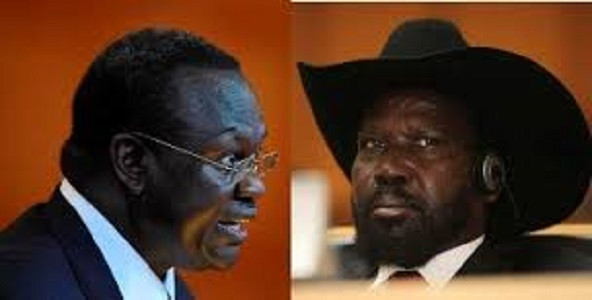South Sudan Conflict: Leaders to Hold Fresh Peace Talks in Ethiopia

South Sudan's President Salva Kiir and rebel leader Riek Machar are to hold a face-to-face meeting to put an end to the ongoing conflict in the country.
Discussions are expected to focus on ending the fighting and power sharing.
Foreign Minister Barnaba Marial Benjamin was quoted by Reuters as saying that a transitional government would not be discussed, and that Kiir would remain leader until the 2015 elections.
The US said it is sceptical about the outcome of the meeting and announced it is preparing to impose economic sanctions on individuals of both warring sides.
"I don't believe that [the two sides] will reach an agreement straight away," US Ambassador to South Sudan Susan Page said.
"But if they can agree on a broad-based process on how to resolve the conflict, end the fighting, that would be a step forward."
The conflict in South Sudan started last December when President Kiir, of the ethnic group Dinka, fired former vice-President Riek Machar, an ethnic Nuer, and accused him of plotting to overthrow the regime.
Machar denied the accusation and accused Kiir of carrying out violent purges.
The accusations sparked violence among the two ethnic groups causing the death of thousands and leaving more than a million displaced.
Several NGOs have accused both warring sides of committing crimes against humanity including mutilation, rape and extrajudicial executions.
Rebels have looted villages, hospitals, religious buildings as well as UN compounds, the UN said.
It added that an estimated five million people are in need of aid.
The UN mission in South Sudan (UNMISS) warned that hundreds of civilians are being killed due to their ethnic origins and nationality.
UNMISS warned that radio stations are used to broadcast hate speech.
A peace deal was reached by Kiir and Machar in January, but the ceasefire was broken shortly after by renewed attacks.
The South Sudanese government released four political prisoners accused of attempted coup last April, meeting one of the rebels' key demands.
The release of the four men is believed to have paved the way for the new peace talks.
© Copyright IBTimes 2025. All rights reserved.





















